Dear Parents, we hope this message finds you well. We understand that life can sometimes throw unexpected challenges our way, leading to absences from school. It's important for us to work together to ensure that each student stays on track with their learning. We invite you to read more about our approach to addressing student absenteeism and how we can support your child's education.
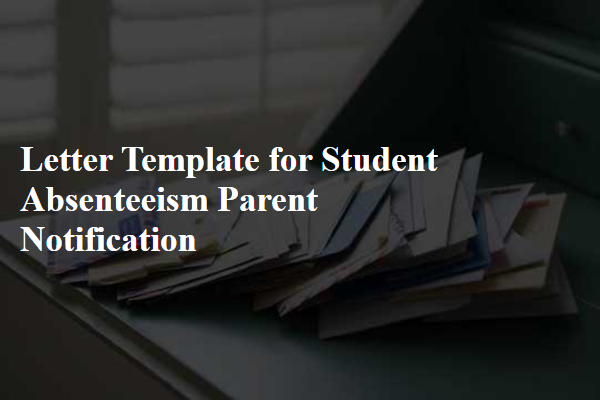
Clear identification of the student and school details
Students frequently miss school for various reasons, including illness, family emergencies, or extracurricular activities. Consistent absenteeism can impact academic performance and hinder overall educational development. Notifications (such as letters or emails) are commonly sent to parents or guardians to inform them of student absence rates. Schools often include crucial information, like the student's full name, grade level, and specific school name, such as Maplewood High School located in Springfield, to ensure clarity. The notification also outlines the number of absentee days, typically exceeding five in a single semester, emphasizing the importance of attendance in the learning process. Additionally, schools may provide suggestions for improvement and resources available for parents to help address underlying issues contributing to absenteeism.
Specific dates and number of absences
The recent absenteeism reported for your child, occurring on September 10, 12, and 15, has raised concerns regarding their engagement in academic activities. Accumulating three unexcused absences within this short time frame can significantly impact their progress in class. Each absence not only hinders their learning but also affects classroom dynamics and peer interactions. Please address these concerns promptly to ensure that your child remains focused and attains satisfactory academic performance.
Explanation of the importance of attendance
Regular attendance is crucial for academic success and overall development in students. Studies have shown that consistent attendance significantly impacts learning outcomes, with students who attend school regularly achieving higher grades and better understanding of the curriculum. For instance, students with attendance rates above 90% often show improvements in test scores and classroom participation. Chronic absenteeism, defined as missing 10% or more of school days, can lead to long-term consequences, including increased risk of drop-out rates and diminished social skills. Schools, such as Lincoln High in Chicago, Illinois, have implemented various intervention programs to address absenteeism, highlighting its recognition as a critical factor for student achievement. Engaging parents in the importance of attendance fosters a supportive environment for students, encouraging them to prioritize their education and develop a sense of responsibility.
Contact information for further discussion or assistance
Student absenteeism poses significant challenges for academic progress, particularly in elementary and secondary education settings. Notable research indicates that students missing more than 10% of school days (approximately 18 days in a typical academic year) may struggle academically, contributing to decreased graduation rates. Schools often monitor attendance closely, employing automated systems that notify parents regarding absences. Effective communication is crucial; providing parents with a dedicated contact number (such as the school's attendance office at +1-555-1234) allows for discussions about attendance patterns and available support. Schools may also offer resources like counseling or tutoring, aimed at addressing underlying issues associated with absenteeism. Early interventions can enhance student engagement and promote consistent school attendance, ultimately fostering educational success.
Encouragement of parental involvement and cooperation
Student absenteeism can significantly impact academic performance and engagement levels. Regular attendance, defined as attending school at least 90% of the time, is crucial for students' success in their educational journey. Notable events, such as parent-teacher conferences held every semester at local schools, provide valuable opportunities for parents to collaborate with educators for addressing attendance issues. School policies often highlight the importance of parental involvement in promoting consistent school attendance. Engaging with the school community, including open houses and support programs, fosters a cooperative environment aimed at reducing absenteeism and enhancing students' overall learning experiences.
Letter Template For Student Absenteeism Parent Notification Samples
Letter template of student absenteeism parent notification for unexcused absences.
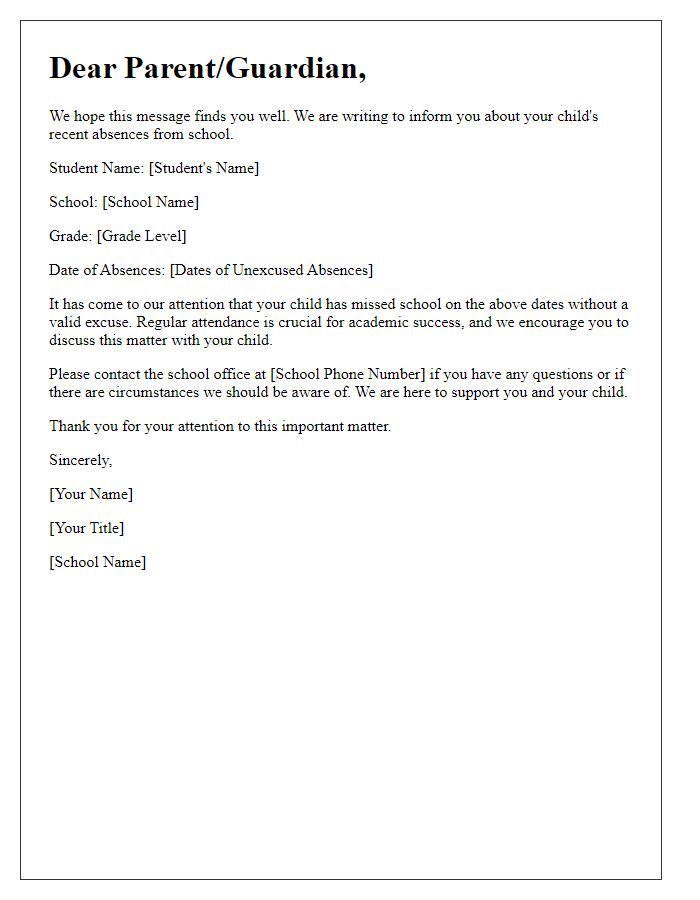
Letter template of student absenteeism parent notification for excessive tardiness.
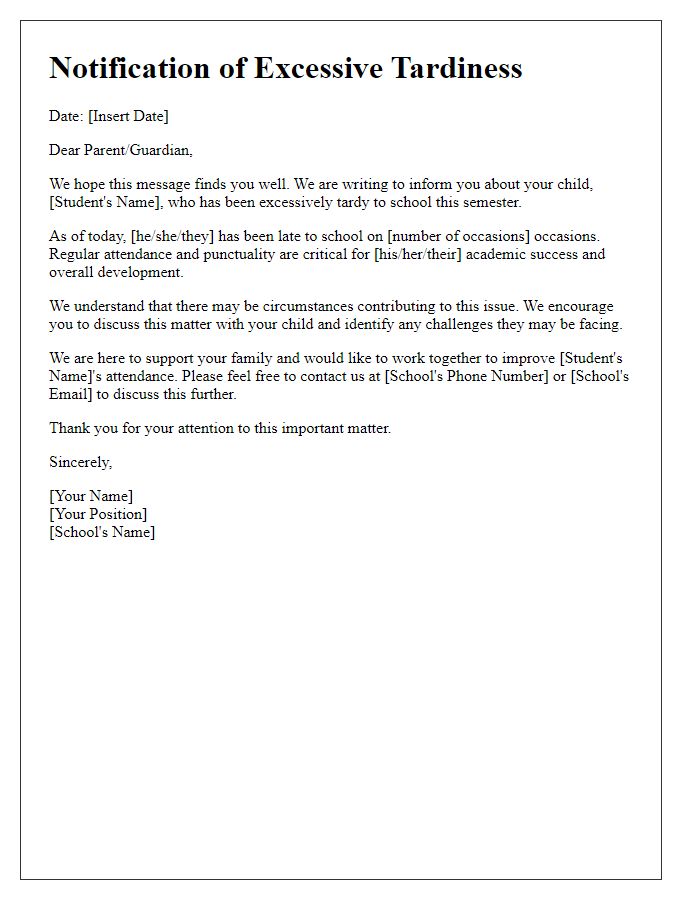
Letter template of student absenteeism parent notification for medical leave.
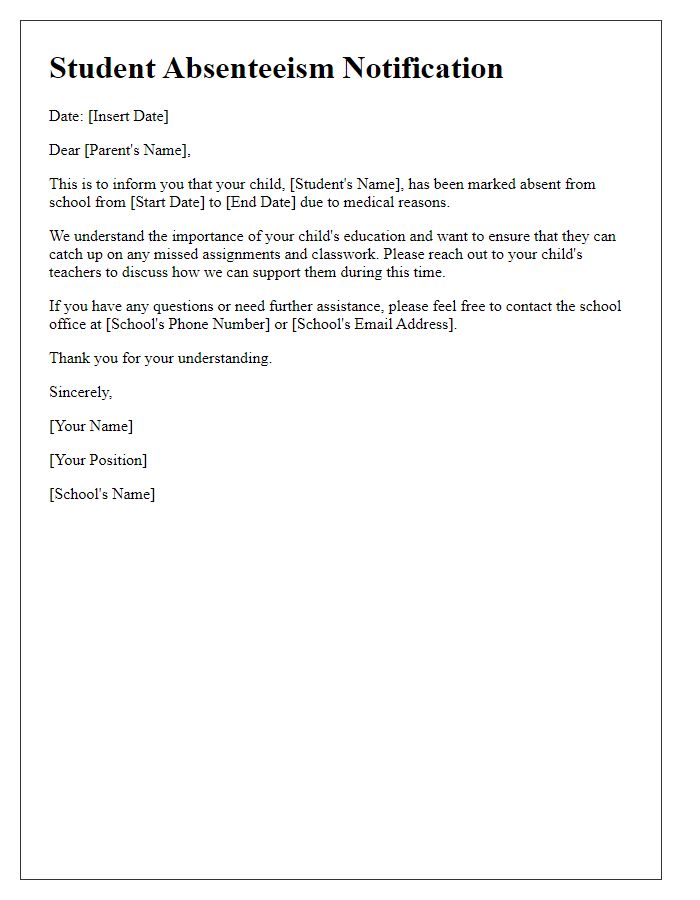
Letter template of student absenteeism parent notification for chronic absenteeism.
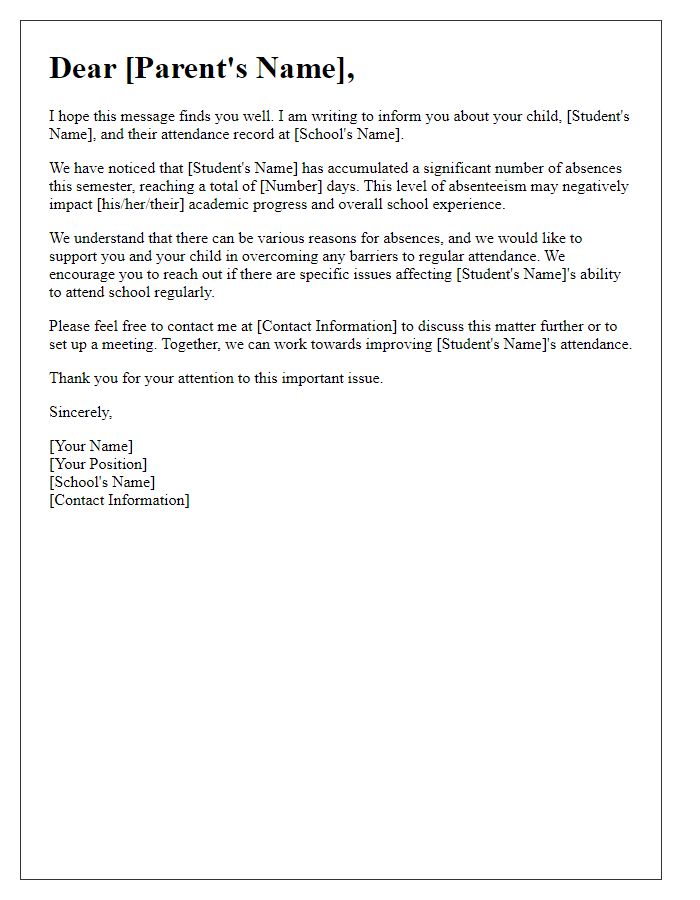
Letter template of student absenteeism parent notification for school policy reminder.
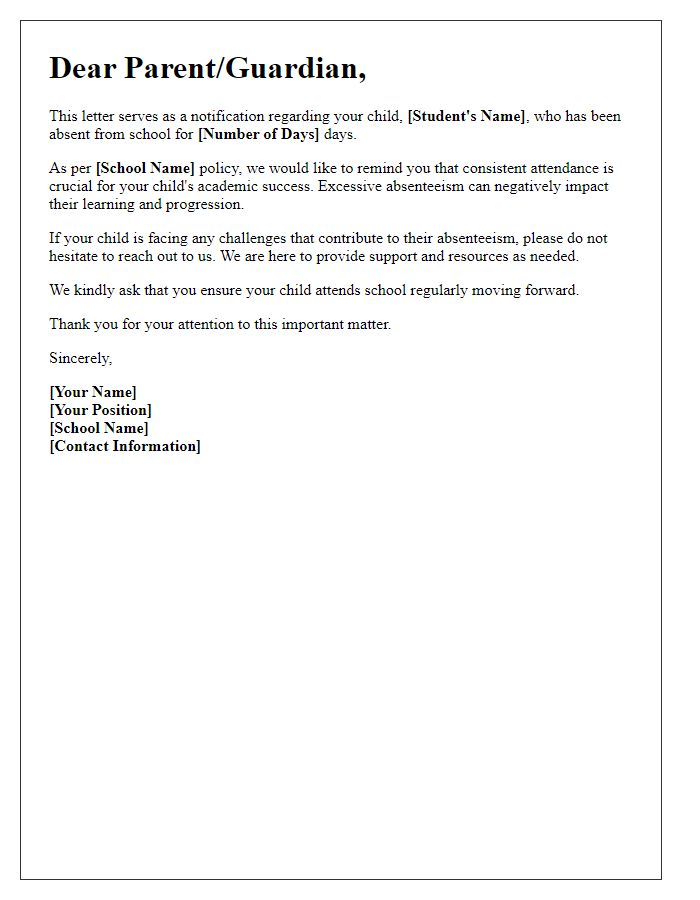
Letter template of student absenteeism parent notification for attendance improvement plan.
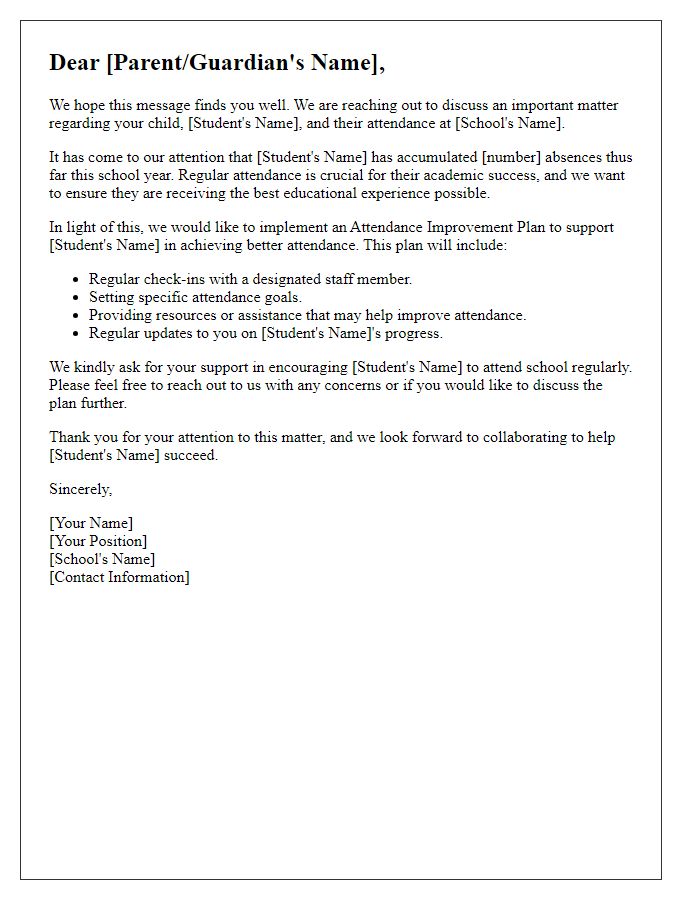
Letter template of student absenteeism parent notification for end-of-term attendance report.
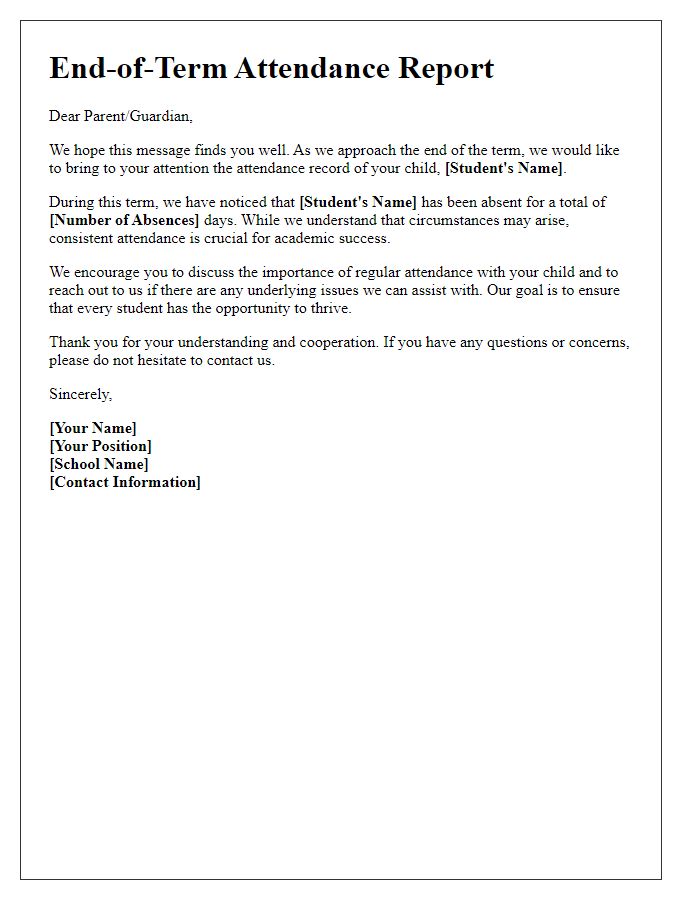
Letter template of student absenteeism parent notification for student support resources.
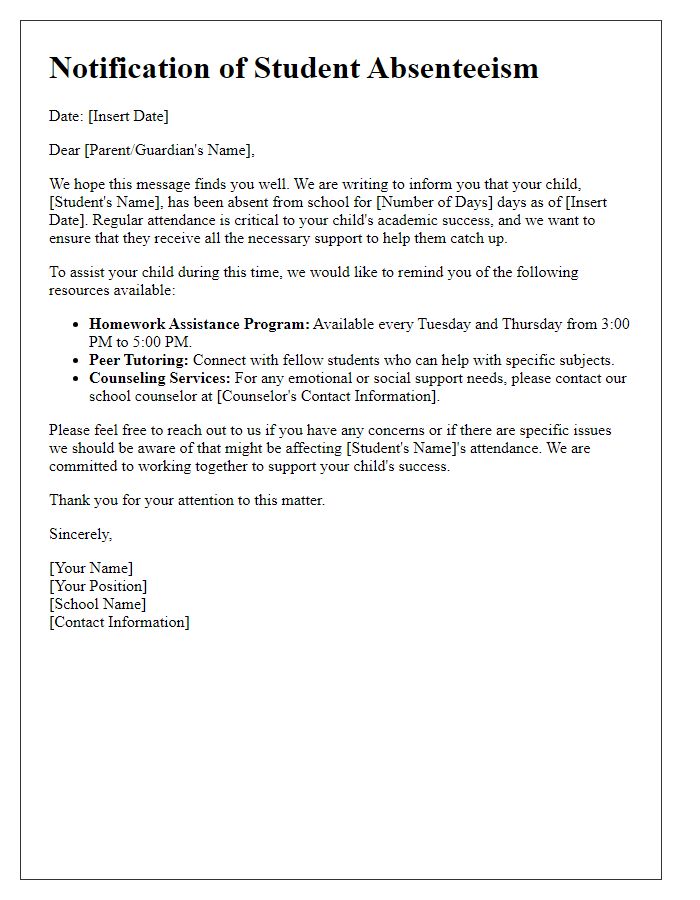
Letter template of student absenteeism parent notification for absences during exams.
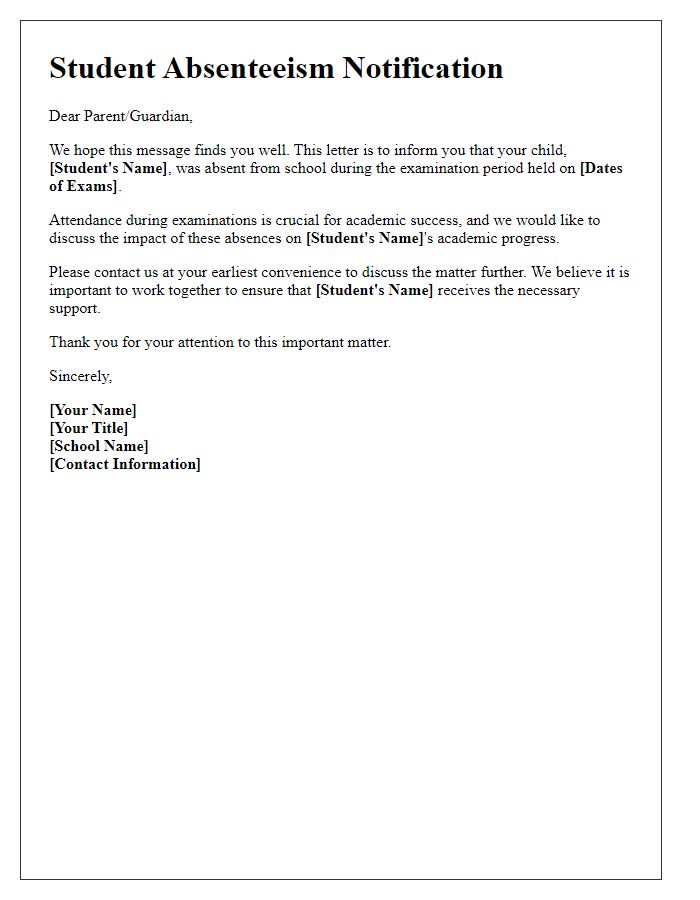

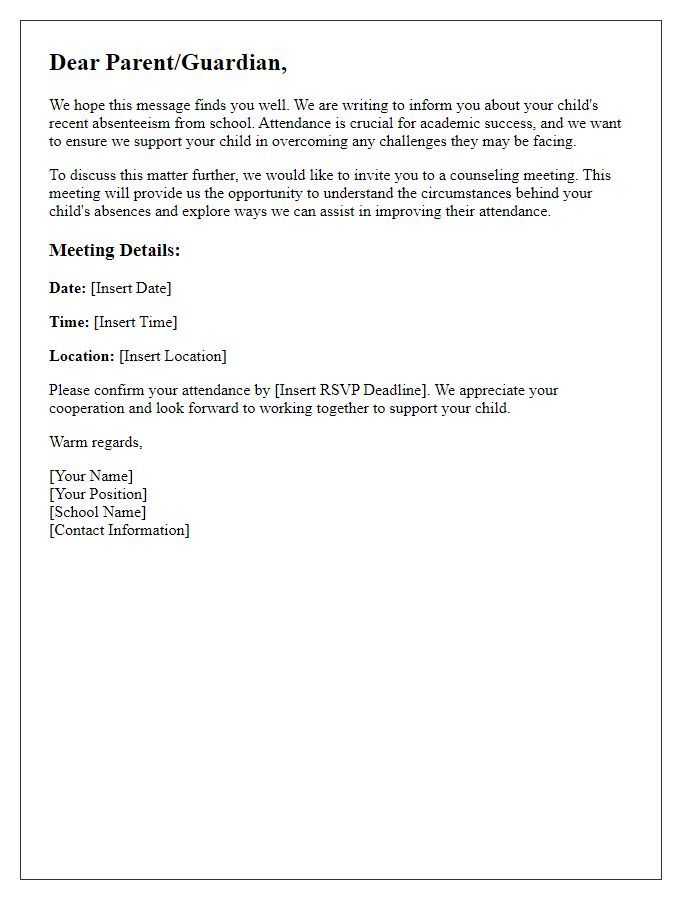


Comments